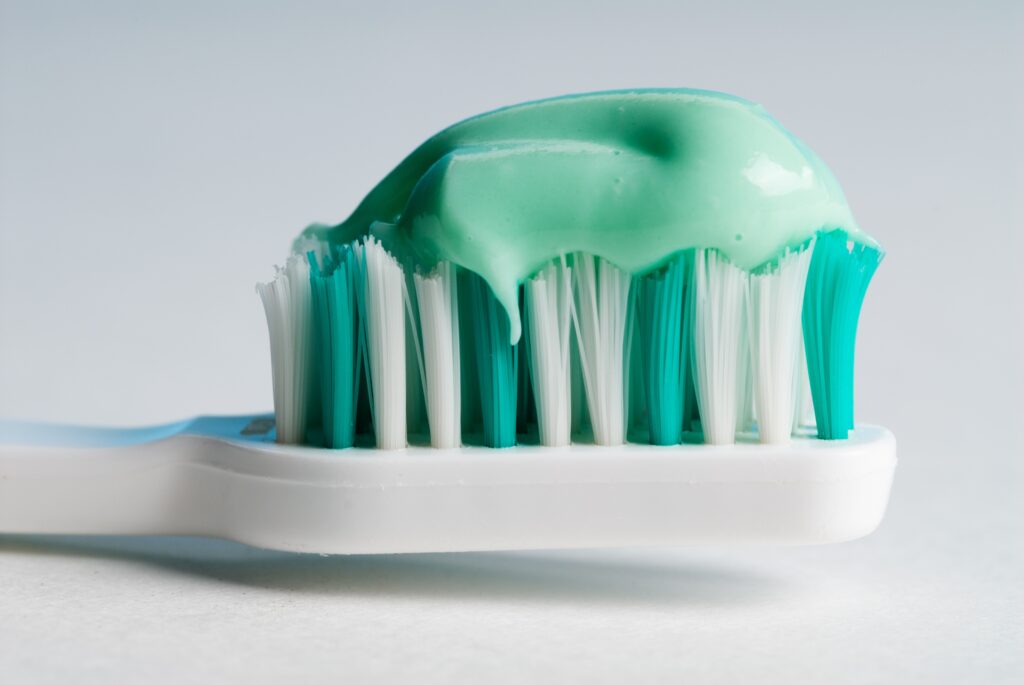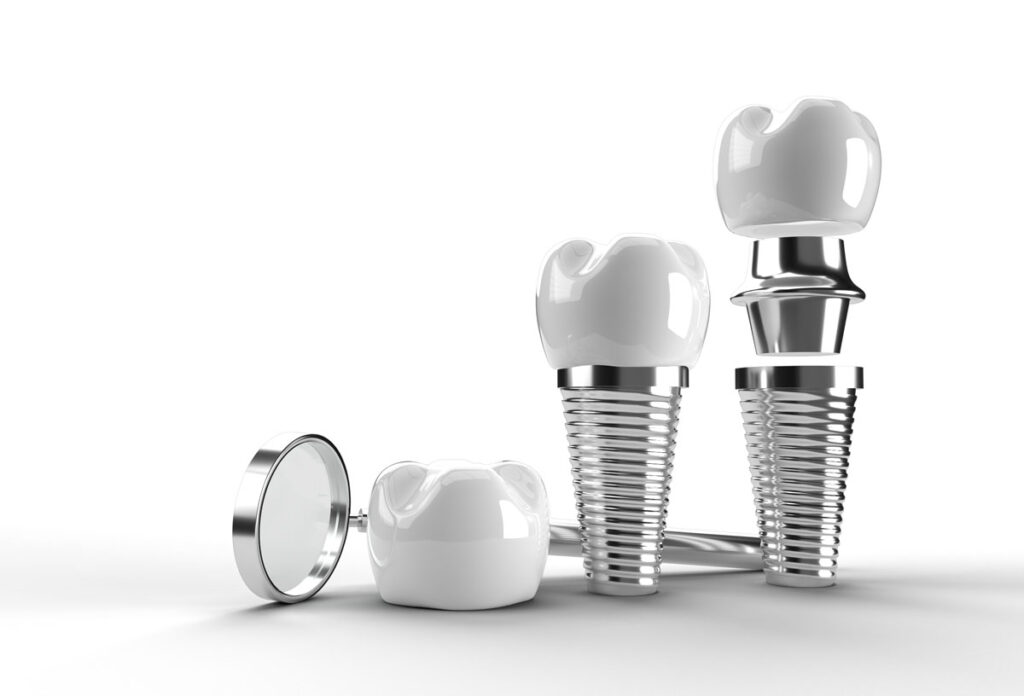Crowns protect the remaining part of your teeth after your dentist fixes damage or decay. While they are incredibly important in maintaining good dental hygiene, they can also be expensive. When it comes to your oral health, you simply cannot afford to put damage or decay on the backburner. But if money is tight, what are your best next steps?
Questions like “what is a dental crown”, “how much does a dental crown cost”, and “what is a dental crown cost without insurance” are bound to arise, and we’re here to provide the insight you need to make an informed decision that puts your health first.
What is a Dental Crown?
A dental crown is essentially a cover for a damaged or decaying tooth that restores the tooth to its natural shape, size, and strength. Crowns are typically made from porcelain, composite resin, metal alloys, or ceramics.
If your dentist recommends a crown, it is likely because you:
- Have a cavity too large for a traditional filling.
- Have a cracked or worn down tooth.
- Need extra protection for a root canal procedure.
Dental Crown Cost Factors
Without insurance, the average cost of a dental crown can vary significantly, ranging anywhere between $500 to $1,500, depending on the type of crown you need. The final cost of your crown depends on a number of variable factors. While there are a number of types and options out there, your specific needs may only be met by a select few types of crowns, which means your particular price range may be less flexible.
Dental Crowns can cost anywhere from $500 to $1,500.
If you see a type of crown that’s cheaper than one your dentist recommended, keep in mind that each type of crown serves a slightly different purpose—for example, some are only temporary or only designed for baby teeth. Therefore, you may not always be able to easily substitute one kind for another.
Because crowns are traditionally recommended to patients to improve the function of a tooth and boost overall oral health, most insurance plans typically cover some or all dental crown costs.
No two procedures are exactly alike, but there are some common factors that ultimately influence your specific dental crown cost, including:
- The material the crown is made of.
- The amount of preparatory work required to install the crown.
- The extent of damage that needs to be repaired.
- The size of the crown.
- The particular dentist or practice you frequent.
Types of Dental Crowns
Reading about all the different types of crowns can be confusing and overwhelming. With so much information in front of you, how are you supposed to know which dental crown is best for you? Ultimately, your dentist will be best equipped to recommend the best crown for your situation and area of your mouth involved.
For a consolidated look at the many types of dental crowns out there, we’ve compiled a list of each type of dental crown.
Stainless Steel
Stainless steel crowns are used as a temporary measure for permanent and primary teeth. They are most commonly used for children’s teeth because their primary teeth will soon come out, making the stainless steel crown fall off naturally.
Metal
For metal crowns, less tooth structure needs to be removed in preparation for the crown. These crowns often last the longest and are some of the most resistant to wear and tear. They are most frequently used for back teeth, which usually remain unseen and benefit from the sturdiness of all-metal crowns.
Porcelain + Metal
These crowns look like normal teeth, which is a plus. However, they can have a lot of wear and tear on the opposing teeth when you bite down and chew, and the porcelain part of the crown can break off. Crowns made of porcelain and metal can be used for both front and back teeth.
Porcelain or Ceramic
All-ceramic or all-porcelain crowns are a great choice if you’d like the crown to match the natural color of your teeth. These are also a great option for individuals who are allergic to metal. Keep in mind that these can wear down on opposing teeth more than metal or resin crowns, and are more fragile than crowns supported with metal. These kinds of crowns can also have higher costs than other materials due to their more specialized nature.
Resin
All-resin dental crowns are the least expensive compared to the other types of crowns listed. However, they can wear down more quickly and fracture more easily than the crowns made of porcelain and metal. For these reasons, resin crowns are rarely a long-term solution and are usually a temporary stand-in.
Additional Procedures to Support the Dental Crown
Your total cost may differ because of additional procedures like building up the tooth beforehand or paying a lab to make the crown. These contribute to the stability and longevity of the crown if your tooth roots need additional support and usually range between $100 and $500 with no dental insurance.
- Core Buildup – prepares tooth for crown, ADA Code: 2950
- Additional pins to hold crown in place, ADA Code: 2951
- Custom-made post & core to hold crown in place, ADA Code: 2952
- Prefabricated post & core to hold crown in place, ADA Code: 2954
Why Do I Need to Get a Dental Crown?
Dentists most commonly use crowns to repair and strengthen a damaged tooth (particularly after a procedure like a root canal, or if the cavity is too deep for a filling to work). However, crowns can also be used to simply improve the appearance of a tooth, including its color, shape, or even alignment.
Should I Get Dental Insurance Before I Get A Crown?
Typical dental insurance plans will cover many types of crowns as long as they are deemed necessary and not cosmetic. However, there are a few reasons a dental insurance plan may still not help you if you need a crown:
Waiting Periods
Many insurance policies have waiting periods of 6 months to 1 year before you are eligible for savings on crowns. Even then, the most you will usually be able to save is 50%. You will want to weigh the cost of the monthly insurance premiums plus the extended wait time for the procedure you need against what you will actually save with the insurance plan.
Exclusions of Pre-existing Conditions
In addition, many insurance plans exclude pre-existing conditions, which could mean you’d still end up paying full price.
Limits on Types of Crowns
Some dental insurance plans will also only allow you to save on a replacement crown once every 5 to 7 years. If you need one sooner than that, you may still need to pay full price. Additionally, other insurance plans will only cover crowns in drastic cases or when a root canal has been performed.
Annual Limits on Payment
Many dental insurance plans have annual limits that they will cover in one year, ranging from $1,000 to $1,500. As you saw above, that annual limit can often be easily reached with just one crown. Any other dental needs you’d have during the year would then need to be paid for out of pocket.
A Better Way to Save Money on Crowns
If you find yourself struggling to pay for the dental work you need to keep your oral hygiene in top-top shape and your smile bright and healthy, 1Dental’s dental savings plans can help. These plans are designed to save you money on your dental care needs. Between taking advantage of no deductibles, co-pays, or long waiting periods, you can go through with your necessary procedures without worry of any severe financial consequences.
The Care 500 Series Plan will show you crown costs in your area compared to costs without insurance. These prices are for procedures done by general dentists. If you need to see a specialist, we recommend adding the Dental Access Plan (powered by the Aetna Dental Access network) which provides better savings at specialists. Our Preferred Plan includes both networks for the most flexibility and highest savings overall.
Benefits of a Dental Discount Plan for Saving Money on Crowns:
- No waiting periods — In fact, you can use the Care 500 Series plan the day you sign up!
- No annual limits.
- No exclusions of pre-existing conditions.
- Use as often as you need.
- No limits on types of crowns — save on cosmetic crowns, too!
Summary: Why is the Preferred Plan our best selling plan for crowns?
- Best savings at general dentists AND specialists
- Exact procedure prices online with Care 500 Series
- Largest list of dentists with Dental Access
- Millions of members, in business since 1979
- Plan priced at an everyday low price, starting at $169 a year
This content is not intended to be a substitute for professional dental advice, diagnosis, or treatment. Always seek the advice of your dentist with any questions you may have regarding your oral health.







I need 2752 and 22950. My dentist has given a price of $1536. How much of a discount will you guys give me?